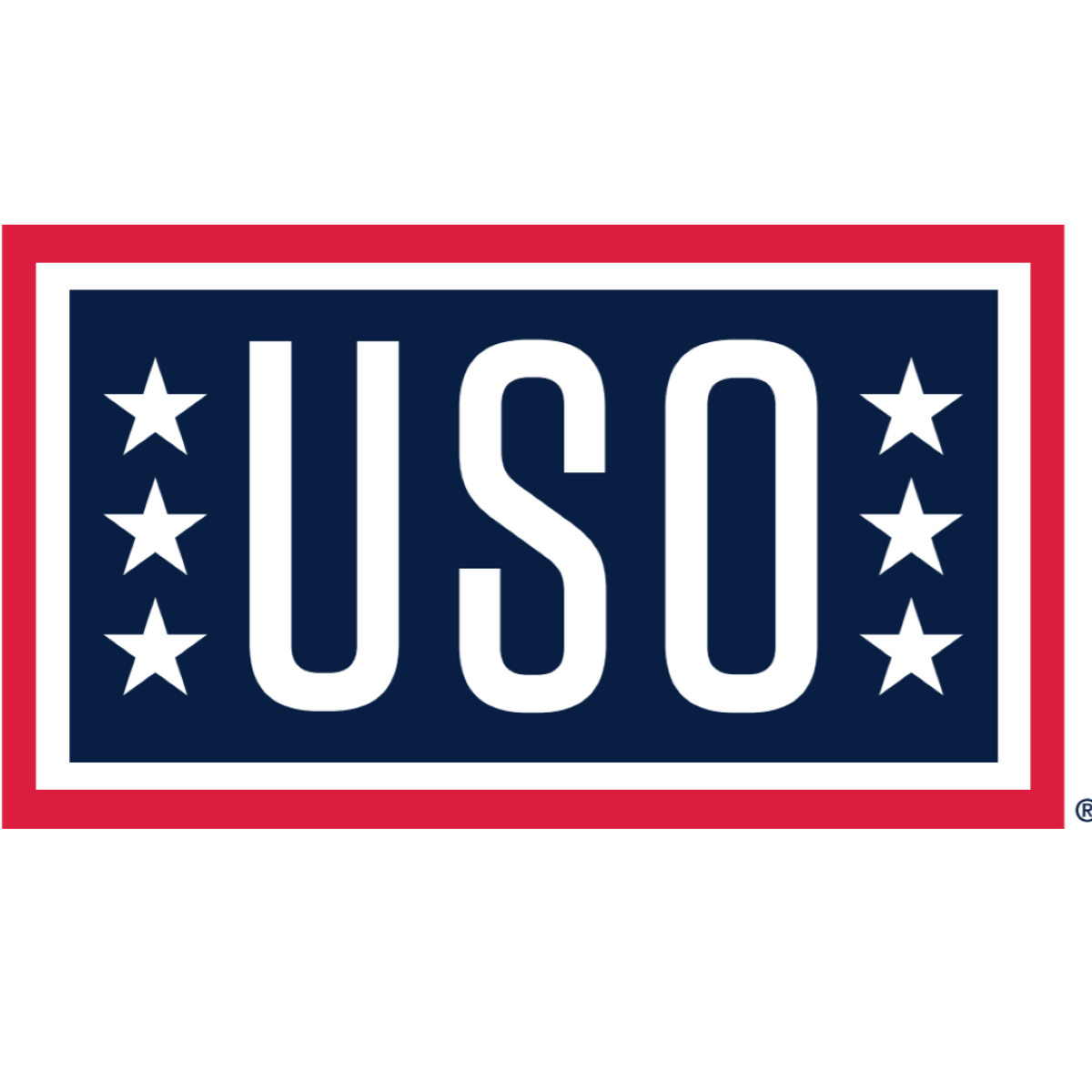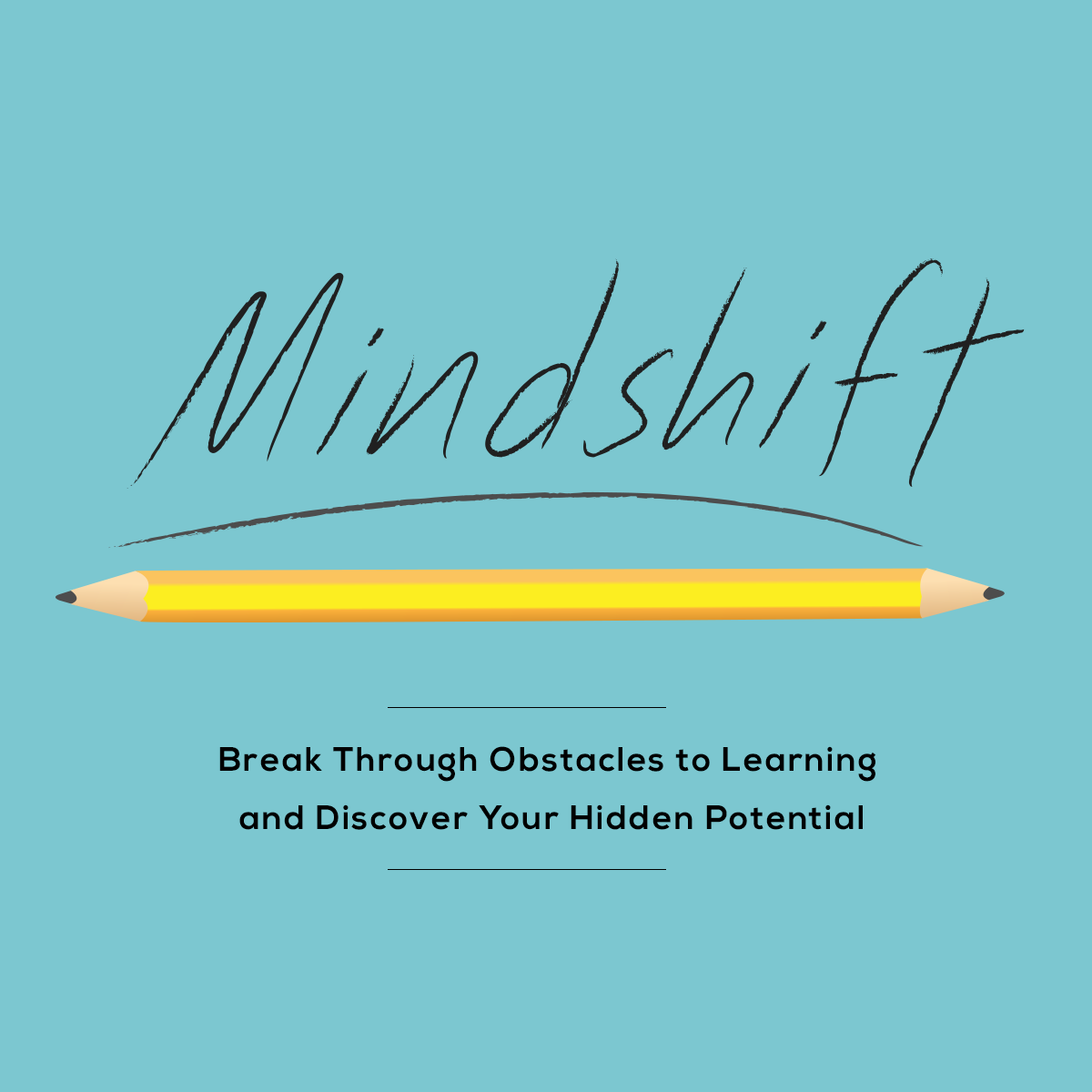Career Planning
vigating Your Professional Journey: A Comprehensive Guide to Career Planning
Career planning is the deliberate, ongoing process of exploring your interests, skills, and values to make informed decisions about your professional life. It's more than just finding a job; it's about designing a fulfilling and sustainable career path that aligns with who you are and where you want to go. This process involves understanding yourself, researching potential opportunities, setting achievable goals, and taking consistent action to move forward, all while adapting to the ever-evolving landscape of work.
Engaging in thoughtful career planning can be an incredibly rewarding endeavor. It empowers you to take control of your professional destiny, leading to greater job satisfaction and personal fulfillment. Furthermore, in a world where industries and job roles are constantly changing, proactive career planning equips you with the foresight and adaptability needed to navigate these shifts successfully, ensuring long-term financial stability and growth. Imagine the confidence that comes from knowing you are actively shaping your future, rather than passively reacting to circumstances. This journey also allows for continuous learning and development, making your professional life a dynamic and engaging experience.
Introduction to Career Planning
What is Career Planning?
At its core, career planning is a structured approach to managing your working life. It's a continuous cycle of self-discovery, exploration, decision-making, action, and reflection. Think of it as creating a roadmap for your professional journey, one that you regularly consult and update as you gain new experiences and insights, or as external circumstances change. It's not a one-time event you complete after graduation, but rather a lifelong companion that helps you navigate the twists and turns of your career.
This process involves several interconnected activities. You begin by looking inward to understand your unique attributes. Then, you look outward to explore the vast world of occupations and industries. Armed with this knowledge, you make informed choices, set meaningful goals, and develop a plan to achieve them. Crucially, career planning also involves implementing your plan and then regularly stepping back to reflect on your progress, making adjustments as needed. It’s about being intentional and proactive in building a career that is both meaningful to you and viable in the broader economic context.
The ultimate aim of career planning is to help you find work that not only pays the bills but also provides a sense of purpose, aligns with your values, and allows you to use your talents effectively. It's about creating a synergy between what you enjoy, what you're good at, and what the world needs (and is willing to pay for).
The Importance of Proactive Planning
Proactive career planning offers significant advantages over a more reactive approach to job searching. When you plan proactively, you are in the driver's seat, making deliberate choices based on self-awareness and research. This often leads to greater job satisfaction, as your career choices are more likely to align with your intrinsic motivations and long-term aspirations. You are building a career by design, not by default.
Conversely, reactive job searching often occurs out of necessity—perhaps due to a layoff, dissatisfaction with a current role, or sudden financial pressure. While sometimes unavoidable, this approach can lead to hasty decisions, accepting roles that are not a good long-term fit, or feeling like you're constantly trying to catch up. Proactive planning, on the other hand, helps you anticipate changes in the job market, identify skill gaps early, and position yourself for future opportunities, even before they arise.
Moreover, in today's dynamic world of work, characterized by rapid technological advancements and shifting industry demands, the ability to plan and adapt is more critical than ever. Proactive career planning fosters resilience and agility, enabling you to not just survive but thrive amidst change. It helps you build a diverse skill set and a strong professional network, making you a more competitive and adaptable candidate throughout your working life. This foresight can lead to better financial stability and a stronger sense of control over your professional narrative.
Key Stages in the Career Planning Cycle
The career planning process can be understood as a cycle with several key stages, each building upon the last. The first stage is Self-Assessment, where you delve into understanding your interests, values, personality, skills (both technical and transferable), and work-life balance preferences. This introspective phase forms the foundation for all subsequent decisions.
Following self-assessment is Exploration. Here, you research various career options, industries, and specific job roles that seem to align with your self-assessment findings. This involves gathering information about job duties, required qualifications, working conditions, salary expectations, and future outlook for different professions. Informational interviews, online research, and experiential learning like volunteering or shadowing can be invaluable during this stage.
The third stage is Decision-Making. Based on your self-understanding and exploration, you narrow down your options and make choices about your desired career path or next steps. This might involve selecting a field of study, targeting specific industries, or deciding on a particular job role. This is also where you begin to set initial goals. The subsequent stage is Action, which involves implementing your decisions. This could mean pursuing further education, acquiring new skills, actively searching for jobs, networking, or making a career transition. Finally, Reflection and Adaptation is an ongoing stage where you evaluate your progress, reassess your goals, and make adjustments to your plan as you learn and grow, or as the world around you changes. This cyclical nature ensures that your career plan remains relevant and responsive throughout your professional life.
Self-Assessment: Understanding Yourself
Identifying Your Interests, Values, and Personality
The journey of effective career planning begins with a deep dive into understanding yourself. Your interests are the subjects and activities that genuinely fascinate and engage you. Identifying these can point you towards fields where you're more likely to find enjoyment and motivation in your daily work. Think about what you read in your spare time, the hobbies you pursue, or the topics that you find yourself discussing enthusiastically. These are clues to your innate curiosities.
Your values represent what is fundamentally important to you in life and work. These could include things like financial security, opportunities for advancement, work-life balance, making a difference, creativity, independence, or intellectual stimulation. Clarifying your core work values helps you evaluate potential career paths and employers to ensure a good fit. A job that aligns with your values is more likely to lead to long-term satisfaction and a sense of purpose.
Lastly, your personality encompasses your characteristic patterns of thinking, feeling, and behaving. Are you introverted or extroverted? Do you prefer structure or flexibility? Are you detail-oriented or a big-picture thinker? Understanding your personality can help you identify work environments and roles where you are likely to feel comfortable and perform effectively. For example, someone who is highly analytical and enjoys solitude might thrive in a research role, while an outgoing and persuasive individual might excel in sales or public relations.
These courses can help you embark on this journey of self-discovery and align your findings with potential career paths.
For those looking to delve deeper into understanding personal drivers and aligning them with career choices, the following books offer well-regarded frameworks and exercises.
Recognizing Your Skills: Hard and Soft
Skills are the specific abilities and knowledge you possess that enable you to perform tasks effectively. They are broadly categorized into hard skills and soft skills. Hard skills are typically teachable, measurable, and often job-specific. Examples include proficiency in a programming language, operating machinery, data analysis, accounting, or fluency in a foreign language. These are often acquired through education, training programs, and on-the-job experience.
Soft skills, on the other hand, are interpersonal and behavioral attributes that relate to how you work and interact with others. These are often called transferable skills because they are valuable across many different jobs and industries. Examples include communication, teamwork, problem-solving, critical thinking, leadership, adaptability, time management, and emotional intelligence. While sometimes harder to quantify, soft skills are increasingly recognized by employers as crucial for success in any role, particularly in collaborative and dynamic work environments.
A comprehensive self-assessment involves identifying both your hard and soft skills. Consider your past experiences—whether in academic projects, previous jobs, volunteer work, or personal pursuits—and pinpoint the skills you utilized and developed. Don't underestimate the value of skills gained in seemingly unrelated contexts, as many soft skills, in particular, have broad applicability. Recognizing your current skill set is the first step towards identifying any gaps you might need to address to achieve your career goals.
These courses offer insights into identifying and developing essential professional skills.
Utilizing Assessment Tools and Techniques
A variety of tools and techniques can aid in the self-assessment process, providing structure and new perspectives. Interest inventories, such as the Strong Interest Inventory or Holland Codes (RIASEC), help you identify careers that align with your interests by comparing your preferences to those of people successfully employed in various occupations. Skills assessments can help you pinpoint your strengths and areas for development, ranging from formal tests to informal checklists based on job descriptions you find appealing.
Values clarification exercises guide you in prioritizing your work values, helping you understand what you truly need from a job to feel satisfied. These exercises might involve ranking a list of values or reflecting on past experiences where you felt particularly fulfilled or unfulfilled. Personality assessments, like the Myers-Briggs Type Indicator (MBTI) or the Big Five personality traits, can offer insights into your work style, communication preferences, and how you might fit into different team dynamics and organizational cultures. It's important to remember that these tools provide suggestions and frameworks, not definitive answers.
Beyond formal assessments, simple yet powerful techniques like journaling, creating mind maps, or engaging in reflective discussions with trusted friends, family members, or a career counselor can be incredibly beneficial. Consider prompts like: "What activities make me lose track of time?" "What achievements am I most proud of, and what skills did they require?" "What kind of impact do I want to make?" The goal is to gather comprehensive data about yourself from multiple angles to build a realistic and nuanced self-appraisal, which is crucial for making sound career decisions.
This course provides a practical approach to assessing skills and planning career actions.
Exploring Career Options and Industries
Research Strategies for Occupations and Industries
Once you have a clearer understanding of yourself, the next step is to explore the vast world of career options and industries. Effective research is key to identifying paths that not only align with your self-assessment but are also practical and promising. Start with broad online research using resources like the Occupational Outlook Handbook from the U.S. Bureau of Labor Statistics, which provides detailed information on hundreds of occupations, including job duties, education requirements, salary, and job outlook. Many countries have similar governmental resources.
Beyond government sites, explore industry-specific websites, professional association pages, and company career sections. Look for information on industry trends, key players, and the types of roles available. Another powerful research method is conducting informational interviews. This involves reaching out to people working in fields or roles that interest you and asking them about their experiences, challenges, and advice. It's a fantastic way to gain firsthand insights and expand your professional network.
For a more immersive experience, consider job shadowing, where you observe someone in their daily work environment for a short period. Internships, volunteer work, and freelance projects in areas of interest can also provide invaluable direct experience and help you test the waters before committing to a specific path. OpenCourser's browse section can also be a great starting point to discover various fields and the learning opportunities associated with them.
This course is designed to help you navigate the process of considering new career directions.
Evaluating Options Based on Fit and Market Realities
As you gather information, you'll need a framework for evaluating potential career options. The primary filter should always be how well an option aligns with your self-assessment results: your interests, values, skills, and personality. A career that looks good on paper might not be fulfilling if it doesn't resonate with who you are. Ask yourself: Does this work genuinely interest me? Does it align with my core values? Can I see myself using my strengths in this role? Would the typical work environment suit my personality?
However, personal fit is only one part of the equation. It's also crucial to consider job market trends and the practical realities of each option. Research the current and projected demand for specific roles. What are the typical entry requirements and required qualifications? What is the average earning potential, and how does that align with your financial goals? What is the typical work environment like, including hours, stress levels, and company culture? Understanding these factors will help you make realistic and sustainable choices.
Balancing passion with pragmatism is often a delicate act. Sometimes, your ideal career might require additional education or have a competitive job market. In other cases, a practical option might not fully ignite your passion. The goal is to find a sweet spot—or to strategize how to bridge the gap, perhaps by finding ways to incorporate your passions into a more practical career, or by developing a long-term plan to transition into your dream field.
Understanding Career Pathways and Ladders
Many industries and professions have established career pathways or career ladders, which represent typical progressions from entry-level positions to more senior roles. Understanding these pathways can help you visualize your potential long-term growth in a particular field. For instance, in marketing, one might start as a Marketing Coordinator, progress to Marketing Specialist, then Marketing Manager, Director of Marketing, and eventually to a Chief Marketing Officer role. Each step typically involves increased responsibility, skill development, and often, higher compensation.
Researching these pathways involves looking at job descriptions for various levels within a field, talking to professionals at different stages of their careers, and reviewing organizational charts if available. Professional associations often provide resources or roadmaps outlining common career trajectories within their respective industries. This exploration can help you set realistic expectations for advancement and identify the skills and experiences you'll need to acquire at each stage.
It's also important to recognize that career paths are not always linear. Lateral moves, transitions to related fields, or even "climbing a lattice" rather than a ladder are becoming increasingly common. Some individuals may choose to deepen their expertise in a specific niche rather than pursuing management roles. Understanding the various ways a career can unfold within an industry allows for more flexible and personalized planning.
Exploring broader topics such as Professional Development can provide insights into general career advancement strategies.
Exploring Traditional and Non-Traditional Paths
When exploring career options, it's beneficial to cast a wide net and consider both traditional and non-traditional career paths. Traditional career paths often involve working for an established organization in a full-time, long-term role, typically with a clear hierarchical structure for advancement. These paths often provide stability, benefits, and well-defined roles, such as becoming a doctor, lawyer, teacher, or engineer within established institutions.
However, the world of work is evolving, and non-traditional career paths are becoming increasingly prevalent and viable. This can include entrepreneurship (starting your own business), freelance work (offering your skills to multiple clients on a project basis), portfolio careers (juggling several part-time roles or income streams), or working in emerging industries or roles that didn't exist a decade ago, particularly in technology and the creative sectors. The gig economy has opened up many such opportunities.
Each type of path has its own set of advantages and challenges. Traditional paths might offer more security but potentially less flexibility. Non-traditional paths often provide greater autonomy and variety but may come with less predictability and the need for strong self-management skills. Your self-assessment—particularly your values around security versus independence, and your tolerance for risk—will help you determine which type of path might be a better fit for you. Don't limit your exploration; sometimes the most fulfilling careers are found by combining elements of both or by forging a unique path altogether.
Setting Goals in Your Career Planning Journey
The Power of Clear Short-Term and Long-Term Goals
Setting clear and achievable goals is a cornerstone of effective career planning. Goals provide direction, motivation, and a framework for measuring progress. Without them, your career exploration and development efforts can become scattered and less impactful. It's helpful to distinguish between short-term goals and long-term goals.
Long-term goals are broader aspirations for your career, often looking 3-5 years or even further into the future. Examples might include "Become a senior software engineer," "Transition into a leadership role in healthcare administration," or "Establish a successful freelance writing business." These provide the overarching vision for your career path. Short-term goals, on the other hand, are more immediate and specific actions that serve as stepping stones towards your long-term aspirations. These could be "Complete an online course in Python programming within three months," "Secure an informational interview with a marketing manager this month," or "Update my resume and LinkedIn profile by next week."
The synergy between short-term and long-term goals is crucial. Short-term goals break down the often daunting prospect of a major career objective into manageable pieces, providing a sense of accomplishment and momentum along the way. They also allow for adjustments if your long-term vision evolves. Regularly setting and reviewing both types of goals keeps your career plan active and aligned with your evolving aspirations and circumstances.
These courses provide frameworks and strategies for effective career planning and goal setting.
This book offers comprehensive guidance on planning and developing your career.
Applying Goal-Setting Frameworks like SMART
To ensure your goals are effective, it's useful to apply a structured framework. One of the most widely recognized and practical frameworks is SMART, which stands for Specific, Measurable, Achievable, Relevant, and Time-bound. Using this framework helps transform vague aspirations into actionable objectives.
Specific: Your goal should be clear and well-defined. Instead of "Get better at my job," a specific goal would be "Improve my proficiency in using Excel pivot tables for data analysis." Measurable: You need to be able to track your progress and determine when the goal is accomplished. For the Excel example, this could be "Successfully complete three projects requiring pivot table analysis with positive feedback." Achievable (or Attainable): The goal should be realistic given your current resources, skills, and constraints. While it should stretch you, it shouldn't be impossible. Relevant: The goal must align with your broader career objectives and values. Improving Excel skills is relevant if your career path involves data analysis. Time-bound: Your goal needs a deadline or a defined timeframe. For instance, "Improve my proficiency in Excel pivot tables for data analysis within the next six weeks."
Applying the SMART criteria to your career goals, both short-term and long-term, significantly increases the likelihood of achieving them. It forces you to think through the details, anticipate potential obstacles, and create a clear path forward. Other goal-setting techniques exist, but the principles of clarity, measurability, and time-focus are common to most effective approaches.
Breaking Down Large Goals into Manageable Steps
Large, ambitious career goals can often feel overwhelming, potentially leading to procrastination or a feeling of being stuck. The key to tackling these is to break them down into smaller, more manageable steps or sub-goals. This process makes the larger objective seem less daunting and provides a clearer roadmap for action. Each small step completed builds confidence and momentum towards the ultimate goal.
For example, if your long-term goal is to "Transition into a career as a User Experience (UX) Designer within two years," this can be broken down considerably. Initial steps might include researching the UX field, then identifying necessary skills. Subsequent steps could involve enrolling in an introductory UX Design course, learning specific software tools (like Figma or Adobe XD), working on personal projects to build a portfolio, networking with UX professionals, and then tailoring your resume for UX roles.
Think of this as creating a project plan for your career goal. Each small step should ideally be a SMART goal itself. This micro-planning approach allows you to focus on one or two actions at a time, celebrate small wins along the way, and adjust your plan more easily if circumstances change or new information emerges. It transforms a monumental task into a series of achievable actions.
The Importance of Flexibility and Goal Revision
While setting clear goals is vital, it's equally important to approach your career plan with a degree of flexibility. The world of work is dynamic, your personal circumstances can change, and you will undoubtedly learn and grow, potentially leading to shifts in your interests or priorities. A rigid career plan that doesn't allow for adaptation can become a source of frustration rather than a guide.
Regularly review your goals—perhaps quarterly or semi-annually, or whenever a significant life event occurs. Ask yourself: Are these goals still relevant to me? Are they still achievable? Has new information emerged that requires a change in direction? It's perfectly normal and often wise to revise your goals, adjust timelines, or even set entirely new ones as you progress through your career.
Embracing flexibility doesn't mean abandoning your ambitions; rather, it means being responsive and resilient. It’s about maintaining your overall direction while being open to new opportunities or different pathways to achieve your aspirations. Sometimes, an unexpected turn can lead to an even more fulfilling outcome than originally planned. The ability to adapt and pivot is a critical skill in modern career management.
Developing Skills and Gaining Experience
Identifying Skill Gaps Based on Career Goals
Once you have set your career goals, a crucial next step is to identify any skill gaps that might prevent you from achieving them. This involves comparing your current skill set (as determined in your self-assessment) with the skills required for your target roles or career path. Job descriptions for positions you aspire to are excellent resources for this; they typically list essential technical (hard) skills and desired behavioral (soft) skills.
Carefully analyze these requirements. For example, if your goal is to become a data analyst, but you lack experience with SQL or data visualization tools, these represent clear skill gaps. Similarly, if a leadership role is your aim, and feedback suggests you need to improve your conflict resolution or delegation abilities, these are soft skill gaps to address. Don't just focus on what you're missing; also acknowledge the skills you already possess that are transferable or directly applicable.
Creating a simple two-column list—"Skills Required" versus "Skills I Have"—can be a helpful visual tool. The discrepancies highlight your development needs. Prioritize these gaps based on their importance for your immediate goals and the feasibility of acquiring them. This targeted approach ensures your learning efforts are focused and impactful.
Pathways to Acquire Skills and Experience
There are numerous avenues for acquiring the skills and experience needed to bridge identified gaps and advance your career. Formal education, such as university degrees or vocational training programs, provides structured learning and recognized credentials for many professions. For more targeted skill development, consider specialized training courses, workshops, or certifications, many of which are available online through platforms like OpenCourser, offering flexibility and accessibility.
Gaining practical experience is equally important. Internships and co-op programs are invaluable for students and career changers, providing real-world exposure and networking opportunities. Volunteering for organizations or projects related to your field of interest can help you develop new skills and demonstrate your commitment. Taking on stretch projects within your current role or seeking out freelance assignments can also provide hands-on experience.
Self-study is another powerful method, especially with the abundance of online resources, books, and tutorials available. This could involve learning a new software, studying industry trends, or practicing a new technical skill. Creating personal projects or contributing to open-source initiatives can be a great way to apply learned skills and build a portfolio to showcase your abilities to potential employers.
These courses focus on enhancing your employability and developing crucial career skills.
The Dual Importance of Technical and Transferable Skills
In today's job market, employers highly value a combination of both technical (hard) skills and transferable (soft) skills. As previously discussed, technical skills are specific to a particular job or industry and are often the baseline requirement for consideration. For example, a graphic designer needs proficiency in design software, a chef needs culinary skills, and a mechanic needs automotive repair knowledge.
However, transferable skills—such as communication, critical thinking, problem-solving, teamwork, adaptability, and leadership—are what often differentiate candidates and contribute to long-term career success. These skills are applicable across a wide range of roles and industries, making you a more versatile and valuable employee. They enable you to effectively apply your technical knowledge, collaborate with others, navigate challenges, and adapt to changing work environments.
Developing both types of skills is essential. While your technical skills might get you an interview, your transferable skills often determine your performance in the role and your potential for advancement. Many employers believe that technical skills can be taught more easily on the job, whereas strong soft skills are harder to cultivate and are therefore highly sought after. Actively seek opportunities to develop and demonstrate both, and be sure to highlight them in your resume, cover letter, and interviews.
Embracing Lifelong Learning for Continuous Growth
The concept of finishing your education and then working in the same way for decades is largely outdated. In a world of rapid technological change, evolving industry demands, and shifting economic landscapes, lifelong learning is no longer a luxury but a necessity for sustained career success and relevance. This means continuously seeking out new knowledge, developing new skills, and adapting to new ways of working throughout your professional life.
Lifelong learning can take many forms. It might involve pursuing formal degrees or certifications, attending workshops and conferences, taking online courses, reading industry publications, learning from mentors and colleagues, or even engaging in self-directed study. The key is to cultivate a mindset of curiosity and a commitment to ongoing personal and professional development. Consider dedicating regular time to learning, much like you would for any other important work task.
Embracing lifelong learning not only helps you stay competitive in your current field but also opens up new career opportunities and makes you more resilient to change. It allows you to pivot more easily if your industry is disrupted or if you choose to pursue a new direction. Companies increasingly value employees who demonstrate initiative in their own learning and can bring fresh perspectives and updated skills to the organization. Platforms like OpenCourser can be invaluable resources in your lifelong learning journey, offering a vast array of courses to help you upskill or reskill.
Formal Education Pathways
How High School Choices Influence Future Options
The groundwork for future career possibilities often begins in high school. While it's certainly not expected that teenagers have their entire career mapped out, the choices made regarding coursework and extracurricular activities can open or close doors down the line. For instance, students interested in STEM (Science, Technology, Engineering, and Mathematics) fields will benefit greatly from taking advanced math and science courses. Aspiring artists might focus on art classes and building a portfolio, while future writers could join the school newspaper or literary magazine.
Beyond specific subjects, developing strong foundational academic skills in areas like critical thinking, writing, research, and communication during high school is universally beneficial, regardless of the eventual career path. Participation in extracurricular activities, whether sports, clubs, or volunteer work, also helps develop important soft skills such as teamwork, leadership, and time management, which are valued by colleges and employers alike.
Guidance counselors in high school can be valuable resources for exploring how different subjects relate to various career fields and for understanding the typical educational requirements for different professions. While it's important not to specialize too early or feel overly pressured, being mindful of how current choices can impact future options is a good early step in career awareness.
This course is designed to assist high school students in preparing for the transition to higher education and initial career considerations.
The Role of University Degrees in Career Preparation
For many professions, a university degree is a standard entry requirement and plays a significant role in career preparation. Undergraduate degrees (such as Bachelor of Arts or Bachelor of Science) provide a broad educational foundation along with specialization in a chosen major. They aim to develop critical thinking, analytical skills, and in-depth knowledge in a particular field, preparing graduates for a range of entry-level to mid-level positions or for further postgraduate study.
Graduate degrees, such as Master's degrees (e.g., MBA, MA, MS) or professional degrees (e.g., MD for medicine, JD for law), offer more specialized knowledge and advanced training. These are often required for certain professions or for roles that demand a higher level of expertise, research capability, or leadership. A Master's degree can facilitate career advancement, a career change, or entry into fields that require specialized qualifications.
The choice of degree and major should ideally align with your career interests and the requirements of your target field. However, many employers also value the transferable skills gained through higher education—such as research, complex problem-solving, and communication—even if the specific major is not directly related to the job. University also offers opportunities for networking, internships, and personal development that contribute significantly to career readiness.
This course, while having a lower score, touches upon the process of pursuing higher education.
This book can guide students from their academic life into their professional careers.
Understanding PhD and Research-Focused Paths
A Doctor of Philosophy (PhD) or other research-focused doctoral degrees represent the highest level of academic achievement in a particular field. These programs are designed for individuals who wish to become experts in their discipline, contribute original research, and often, pursue careers in academia as professors or researchers. A PhD typically involves several years of intensive coursework, comprehensive examinations, and the completion of a substantial dissertation based on original research.
While academia is a primary path for PhD holders, research-focused roles also exist in government agencies, non-profit organizations, and private industry, particularly in research and development (R&D) departments in fields like pharmaceuticals, technology, and engineering. The rigorous training in critical thinking, advanced analytical methods, problem-solving, and project management gained during a PhD can be valuable in these settings.
Pursuing a PhD is a significant commitment requiring deep passion for a subject and a strong aptitude for research. It's a path suited for those who are driven by intellectual curiosity and the desire to push the boundaries of knowledge. Career planning for aspiring PhDs involves not only selecting a research area and supervisor but also considering the academic job market or alternative career paths for highly specialized experts.
Vocational and Technical Schools as Alternatives
University degrees are not the only route to a successful and fulfilling career. Vocational and technical schools offer specialized training programs designed to prepare students for specific trades, technical occupations, or skilled careers. These programs are typically shorter in duration than a four-year degree and focus on providing hands-on, practical skills directly applicable to the workplace.
Examples of careers that can be pursued through vocational or technical training include electricians, plumbers, automotive technicians, welders, medical assistants, dental hygienists, culinary artists, and various roles in IT support and cybersecurity. These schools often boast strong job placement rates due to their close ties with industry and their focus on in-demand skills. For individuals who enjoy hands-on work, prefer a more direct path to employment, or find the traditional university environment less appealing, vocational and technical education can be an excellent choice.
Many vocational programs also offer certifications or licenses that are recognized or required by employers in specific trades. When considering this path, it's important to research the accreditation of the school and program, the demand for the specific trade in your area, and the potential for career growth and earning potential within that field. These pathways provide essential services to society and offer many opportunities for skilled professionals to build rewarding careers.
Independent Learning and Online Resources
The Viability of Online Courses for Career Advancement
Online courses and resources have revolutionized the landscape of learning and professional development, offering unprecedented accessibility and flexibility. For individuals looking to enter a new field, transition careers, or upskill in their current role, online learning platforms present a highly viable pathway. Platforms like OpenCourser aggregate a vast array of courses from various providers, covering nearly every imaginable subject, from technical skills like programming and data science to business management and creative arts.
The viability of online courses stems from several factors. They often allow learners to study at their own pace and on their own schedule, making it easier to balance education with work or family commitments. Many courses are designed by leading universities and industry experts, ensuring high-quality content. Furthermore, online learning can be more cost-effective than traditional on-campus programs, and many platforms offer certificates of completion or even specialized credentials that can enhance a resume.
Whether you're building foundational knowledge in a new area, acquiring a specific in-demand skill, or seeking to supplement a formal degree, online courses provide targeted learning opportunities. They empower individuals to take control of their professional development and stay current in a rapidly evolving job market. For instance, someone in marketing might take an online course in digital marketing analytics to stay ahead of industry trends.
Consider these courses for focused career development using online tools.
Pathways for Independent Learners: Portfolios and Certifications
For independent learners leveraging online resources, demonstrating acquired skills and knowledge to potential employers is key. One of the most effective ways to do this is by building a portfolio of work. A portfolio showcases practical application of your skills through projects, case studies, or examples of your work. For example, an aspiring web developer might create several websites, a graphic designer would compile their best designs, and a writer could present a collection of articles or content pieces.
Contributing to open-source projects is another excellent way for tech-focused learners to gain experience, collaborate with others, and build a public record of their skills. Many online courses include capstone projects or encourage students to develop their own projects, which can form the basis of a strong portfolio. Furthermore, obtaining industry-recognized certifications through online programs can validate your expertise in specific areas, such as cloud computing, cybersecurity, project management, or digital marketing. These certifications can be particularly valuable when transitioning into a new field or seeking roles where specific technical competencies are required.
Effectively, independent learners can craft their own "proof of skill" by combining targeted online coursework with tangible outputs. This proactive approach demonstrates initiative, discipline, and a genuine commitment to mastering a new domain, qualities highly valued by employers. OpenCourser's Learner's Guide offers tips on how to make the most of online learning, including advice on earning certificates and adding them to your professional profiles.
Supplementing Formal Education with Online Learning
Online learning is not just an alternative to formal education; it can also be a powerful supplement. Students enrolled in traditional degree programs can use online courses to deepen their understanding of specific topics covered in their university curriculum, explore related subjects not offered by their institution, or acquire practical skills that complement their academic knowledge. For instance, a business student might take an online course on advanced financial modeling, or an engineering student could learn a new programming language relevant to their field.
For individuals who have already completed their formal education, online courses provide an accessible way to stay current with industry advancements, learn new technologies, or develop skills needed for career progression without committing to another full degree program. This is particularly relevant in fast-moving fields where knowledge can quickly become outdated. A professional might use online resources to learn about artificial intelligence applications in their industry or to hone their leadership and management skills.
Moreover, online learning can serve as a bridge to formal education. Individuals considering a return to university for a graduate degree might first take online courses in their intended field of study to refresh their knowledge, confirm their interest, or even earn prerequisite credits, making the transition smoother and more successful. The flexibility of online resources makes them an ideal tool for continuous learning alongside or in between formal educational pursuits.
Initiating Personal Projects from Online Course Knowledge
One of the most impactful ways to solidify knowledge gained from online courses and demonstrate your capabilities is by initiating and completing personal projects. Theoretical knowledge is valuable, but applying that knowledge to create something tangible showcases your ability to translate learning into action. These projects can range from simple applications to more complex undertakings, depending on the subject matter and your skill level.
For example, after completing an online course in web development, you could build a personal website or a small web application. Someone learning data analysis could find a public dataset and conduct their own analysis, visualizing the results. A student of digital marketing might create and manage a social media campaign for a fictional product or a local community group. These projects not only reinforce your learning but also provide concrete examples for your portfolio and talking points for interviews.
When embarking on a personal project, aim for something that genuinely interests you, as this will help maintain motivation. Document your process, including the challenges you faced and how you overcame them. This demonstrates problem-solving skills and resilience. Sharing your projects on platforms like GitHub (for code), Behance (for design), or a personal blog can increase your visibility and credibility with potential employers or clients. OpenCourser makes it easy to find relevant courses; you can save courses to a list and build your own curriculum to support such projects.
Job Search Strategies
Crafting Effective Resumes and Cover Letters
Your resume and cover letter are often the first impression a potential employer will have of you. An effective resume is a concise, compelling summary of your qualifications, skills, experience, and education, tailored to the specific job you are applying for. It should highlight your most relevant achievements and use action verbs to describe your responsibilities and accomplishments. Quantifying your achievements with numbers and data whenever possible can make a significant impact (e.g., "Increased sales by 15% in six months").
The cover letter provides an opportunity to expand on the information in your resume, express your genuine interest in the role and the company, and showcase your personality and communication skills. It should address why you are a good fit for the specific position and how your skills and experiences align with the company's needs and values. Avoid generic cover letters; research the company and tailor your letter to demonstrate that you've done your homework and are truly enthusiastic about the opportunity.
Many online resources and career services offer guidance on resume and cover letter writing, including templates and examples. It's also beneficial to have someone else review your documents for clarity, grammar, and impact before submitting them. Remember that many companies use Applicant Tracking Systems (ATS) to screen resumes, so incorporating keywords from the job description can help your application get noticed.
These courses provide guidance on crucial aspects of the job application process.
For focused advice on resumes, this book is a valuable resource.
Navigating Job Search Methods: Boards, Company Sites, and Agencies
There are various channels for finding job openings, and a comprehensive job search strategy typically involves utilizing several of them. Online job boards like Indeed, LinkedIn, Monster, and specialized industry-specific boards list numerous vacancies from a wide range of employers. You can set up alerts for relevant positions and easily apply online. However, be aware that popular job boards can attract a high volume of applicants.
Directly checking company career pages is another effective method, especially if you have target companies in mind. Many organizations post openings on their own websites before, or sometimes instead of, using public job boards. This approach shows initiative and a specific interest in that company. Subscribing to company newsletters or following them on social media can also keep you informed about new opportunities.
Recruitment agencies (also known as staffing agencies or headhunters) can also be valuable partners in your job search. They work on behalf of employers to find suitable candidates for open positions. Some agencies specialize in particular industries or types of roles (e.g., IT, finance, temporary positions). Building a relationship with a reputable recruiter in your field can give you access to jobs that may not be advertised publicly and provide you with insights into the job market.
If you are looking for budget-friendly ways to access job search resources or skill-building courses, check the deals page on OpenCourser for current offers.
This book offers practical advice for an efficient job search.
The Critical Role of Networking (Online and Offline)
Networking is the process of building and maintaining professional relationships, and it plays a critical role in career development and job searching. It's often said that many jobs are filled through networking contacts before they are ever publicly advertised—the so-called "hidden job market." Effective networking is not just about asking for a job; it's about exchanging information, offering support, and building mutually beneficial connections.
Offline networking can occur at industry conferences, professional association meetings, workshops, alumni events, or even informal social gatherings. When attending such events, aim to have genuine conversations, listen actively, and show interest in others' work. Follow up with new contacts afterward to maintain the connection. Online networking, primarily through platforms like LinkedIn, allows you to connect with professionals globally, join industry groups, participate in discussions, and reach out for informational interviews. Maintaining an updated and professional online profile is essential.
A key aspect of successful networking is reciprocity. Be willing to help others in your network when you can, whether by sharing information, making an introduction, or offering advice. Building strong relationships takes time and effort, but a robust professional network can provide invaluable support, insights, and opportunities throughout your career.
This course specifically addresses networking as part of career navigation.
Preparing for and Excelling in Interviews
The interview is a crucial stage in the hiring process where you have the opportunity to make a personal impression and demonstrate why you are the best candidate for the job. Thorough preparation is key to interview success. Start by researching the company: its mission, values, products/services, recent news, and company culture. Understand the job description thoroughly and be prepared to explain how your skills and experiences align with each requirement.
Practice answering common interview questions, such as "Tell me about yourself," "Why are you interested in this role?" "What are your strengths and weaknesses?" and behavioral questions that start with "Tell me about a time when..." (using the STAR method—Situation, Task, Action, Result—to structure your answers). Prepare a few insightful questions to ask the interviewer at the end; this shows your engagement and interest. Plan your attire, route (if in-person), and test your technology (if virtual) in advance.
During the interview, aim to be confident, enthusiastic, and professional. Listen carefully to the questions, provide clear and concise answers, and use specific examples to illustrate your points. Maintain good eye contact and positive body language. After the interview, send a thank-you note or email to each interviewer, reiterating your interest in the role and thanking them for their time. This thoughtful follow-up can leave a lasting positive impression.
These courses are designed to help you master the interview process.
Career Progression and Management
Value of Early Work Opportunities
Early work opportunities such as internships, co-operative education programs (co-ops), apprenticeships, and even relevant volunteer roles play a pivotal role in launching a successful career. These experiences offer far more than just a line on a resume; they provide a practical introduction to the professional world, allowing individuals to apply academic knowledge in real-world settings and gain hands-on skills specific to an industry or job function. This experiential learning is invaluable for bridging the gap between education and employment.
Internships and co-ops often allow students or recent graduates to "test drive" a career path, confirming their interest or perhaps revealing that a different direction might be more suitable. They offer a chance to learn about company culture, workplace dynamics, and professional etiquette. Apprenticeships, common in skilled trades, provide structured on-the-job training combined with classroom instruction, leading directly to proficiency and often employment in a specific craft.
Furthermore, these early roles are crucial for building a professional network. Interactions with colleagues, supervisors, and clients can lead to mentorship opportunities and valuable connections that can be leveraged for future job searches or career advice. Many companies also use their internship programs as a primary pipeline for hiring entry-level talent, making these experiences a direct pathway to full-time positions.
This course is specifically designed to help individuals, including those making a military transition, map out their career journey, which often involves leveraging initial work experiences.
Common Entry-Level Positions and Starting Points
Entry-level positions are the typical starting points for individuals beginning their careers in a particular field after completing their education or initial training. These roles are designed for candidates with limited professional experience and focus on developing foundational skills and industry knowledge. The nature of entry-level jobs varies widely across industries. For example, in business, common roles include Analyst, Coordinator, or Associate positions in areas like marketing, finance, human resources, or operations.
In technology, one might start as a Junior Developer, IT Support Specialist, or Quality Assurance Tester. In creative fields, roles like Junior Designer, Editorial Assistant, or Production Assistant are common. Healthcare entry points could be Medical Assistant, Lab Technician, or Nursing Aide. Understanding the typical entry-level roles in your field of interest helps set realistic expectations and target your job search effectively. Researching job descriptions for these positions will also clarify the specific skills and qualifications employers are seeking at this stage.
While entry-level salaries may be modest, these positions are invaluable for gaining experience, learning from seasoned professionals, and building a track record. They serve as the foundation upon which a career is built, offering opportunities to demonstrate competence, work ethic, and potential for growth, which are essential for future advancement.
For those considering a career in specific tech roles like SAP, this course outlines the pathway, including entry points.
This book can help in understanding how to map out your career trajectory from the beginning.
Strategies for Career Growth and Advancement
Career growth and advancement don't happen automatically; they require proactive effort, strategic planning, and consistent performance. One key strategy is to excel in your current role. Consistently meeting or exceeding expectations, demonstrating initiative, and being a reliable team member builds a strong reputation and makes you a candidate for new opportunities or promotions. Seek feedback regularly and be open to continuous improvement.
Actively look for ways to develop new skills and take on more responsibility. This could involve volunteering for challenging projects, pursuing additional training or certifications, or seeking mentorship from senior colleagues. Make your career aspirations known to your manager and discuss potential development paths within the organization. Strong communication skills and the ability to articulate your value are crucial for advancement.
Networking within your organization and industry also plays a vital role. Building relationships with colleagues across different departments and with leaders in your field can open doors to new projects, roles, or even external opportunities. Staying informed about industry trends and company developments will help you identify areas where you can contribute and grow. Sometimes, advancement might mean looking for opportunities outside your current organization if internal growth paths are limited.
These courses focus on managing and advancing your career effectively.
Managing Transitions and Career Adaptability
The modern career is rarely a straight line; it often involves multiple transitions, whether changing roles within the same company, moving to a new organization, switching industries, or adapting to evolving job requirements. Career adaptability—the ability to manage these transitions effectively and respond resiliently to changing circumstances—is a critical skill for long-term success.
Managing career transitions involves several elements. It requires self-awareness to understand when a change is needed or desired, research to explore new options, and planning to navigate the shift. This might mean acquiring new skills, updating your resume, or expanding your network to include contacts in a new field. Emotional resilience is also important, as transitions can sometimes be challenging or involve uncertainty.
Potential career pivots should be approached thoughtfully. Assess how your existing skills can be transferred to a new role or industry, and identify any gaps that need to be filled. Informational interviews with people already in your target field can provide valuable insights. Embracing change as an opportunity for growth rather than a threat can make career transitions a positive and empowering experience. Lifelong learning is a key enabler of career adaptability, ensuring you have the skills and knowledge to navigate whatever comes next.
If you are contemplating a career change, this resource can be particularly helpful.
This classic book is often recommended for those navigating career changes or seeking new directions.
Theoretical Frameworks in Career Development
Overview of Influential Career Development Theories
The practice of career planning and counseling is informed by several influential theories that seek to explain how individuals make career choices and how careers unfold over a lifetime. These theories provide frameworks for understanding the complex interplay of personal and environmental factors in career development. While you don't need to be an expert in these theories to plan your own career, a basic awareness can provide interesting perspectives.
One prominent example is John Holland's Theory of Career Choice (RIASEC), which posits that people and work environments can be categorized into six types: Realistic, Investigative, Artistic, Social, Enterprising, and Conventional. The theory suggests that career satisfaction is highest when there's a good match between an individual's personality type and their work environment type. Another key framework is Donald Super's Life-Span, Life-Space Theory, which views career development as a lifelong process unfolding through distinct stages (Growth, Exploration, Establishment, Maintenance, and Disengagement) and influenced by various life roles (e.g., student, worker, parent).
Social Cognitive Career Theory (SCCT), developed by Lent, Brown, and Hackett, emphasizes the role of self-efficacy (belief in one's abilities), outcome expectations (beliefs about the consequences of actions), and personal goals in shaping career choices and development. It highlights how learning experiences and cognitive factors influence interests, choices, and performance in career-related pursuits. These are just a few examples of the rich theoretical landscape that underpins career development practices.
Core Concepts of Key Theories
Delving a bit deeper, Holland's RIASEC model provides a practical way to link personality to occupations. For example, someone high in the "Investigative" dimension might enjoy analytical, scientific, or scholarly pursuits, while an "Enterprising" type might thrive in leadership, sales, or entrepreneurial roles. Many interest inventories are based on Holland's codes to help individuals explore compatible career options.
Super's theory emphasizes that career development is not a single event but a continuous process integrated with overall personal development. The concept of "career maturity" within this framework refers to an individual's readiness to make informed and age-appropriate career decisions. His theory also highlights the importance of the "self-concept," suggesting that people choose occupations that allow them to express their understanding of themselves.
SCCT focuses on the interplay between personal attributes, external environmental factors, and overt behaviors. A core idea is that individuals are more likely to develop interests in, choose, and persist in activities for which they have high self-efficacy and anticipate positive outcomes. This theory is particularly useful for understanding how people, including those from underrepresented groups, navigate educational and career barriers and develop their career paths.
Understanding these core concepts can help individuals reflect on their own career journey with a more structured lens and can be particularly useful for career counselors and coaches in guiding their clients.
This book offers a comprehensive look at career development, likely touching on these theories.
How Theories Inform Career Counseling and Research
Career development theories are not just academic exercises; they form the bedrock of career counseling practices and guide research in the field. Career counselors use these theoretical frameworks to help clients understand themselves, explore career options, make decisions, and cope with career-related challenges. For instance, a counselor might use Holland's theory to help a client identify work environments where they are likely to thrive or use Super's stages to discuss age-appropriate career tasks.
SCCT can inform interventions aimed at boosting clients' self-efficacy for certain career paths or helping them overcome perceived barriers. Narrative career counseling, drawing on constructivist theories, focuses on helping clients find meaning by authoring their career stories. These theories provide counselors with a range of tools and perspectives to tailor their approach to individual client needs.
In research, these theories generate hypotheses about career choice, satisfaction, and development, which are then tested empirically. This research, in turn, refines the theories and contributes to evidence-based practices in career guidance. For example, studies might investigate the factors that predict career success for different personality types or the effectiveness of interventions designed to enhance career adaptability. The ongoing dialogue between theory, research, and practice ensures that career development support continues to evolve and improve.
For those interested in the practice of guidance, this book may offer relevant insights.
Trends Shaping the Future of Careers
The Impact of Technological Advancements: AI and Automation
Technological advancements, particularly in Artificial Intelligence (AI) and automation, are profoundly reshaping the job market and the nature of work itself. Routine and repetitive tasks across various industries, from manufacturing and data entry to customer service and even some aspects of professional services, are increasingly being automated. This transformation presents both challenges and opportunities for the workforce.
While some jobs may be displaced or significantly altered, new roles are also emerging that require skills in developing, managing, and working alongside these new technologies. According to a 2023 report by the World Economic Forum, analytical thinking and creative thinking are considered the most important skills for workers in the coming years, with an increasing demand for AI and big data specialists, sustainability specialists, and business intelligence analysts. There's a growing emphasis on uniquely human skills that machines cannot easily replicate, such as complex problem-solving, critical thinking, creativity, emotional intelligence, and interpersonal communication.
Individuals and organizations will need to adapt by focusing on upskilling and reskilling to meet these evolving demands. Career planning must now account for the likelihood that skills will need to be updated more frequently, and that roles may change significantly over the course of a career. Embracing technology as a tool to augment human capabilities, rather than solely as a replacement, will be key.
The Rise of the Gig Economy, Remote Work, and Portfolio Careers
The traditional model of a lifelong career with a single employer is increasingly being supplemented, and in some cases replaced, by more flexible work arrangements. The gig economy, characterized by short-term contracts or freelance work as opposed to permanent jobs, has seen significant growth. This offers individuals greater autonomy and variety but often comes with less job security and fewer benefits. Platforms connecting freelancers with clients have facilitated this trend across many sectors.
Remote work, or telecommuting, has also become far more prevalent, accelerated significantly by recent global events. Many companies have adopted hybrid models or fully remote setups, offering employees flexibility in where they work. This shift has implications for work-life balance, company culture, and the skills needed to collaborate effectively in a distributed environment. According to McKinsey's State of Organizations 2023 report, organizations that implemented more flexible work arrangements reported better employee well-being and performance outcomes.
Portfolio careers, where individuals manage multiple income streams from different part-time jobs, freelance projects, or business ventures, are also on the rise. This approach allows for diversification of skills and income, and can be tailored to an individual's varied interests and talents. These trends collectively point towards a future where career paths are less linear and individuals have more agency, but also more responsibility, in designing their work lives.
Growing Emphasis on Lifelong Learning, Adaptability, and Reskilling
In response to rapid technological change and evolving economic landscapes, the emphasis on lifelong learning, adaptability, and the continuous need for reskilling and upskilling has never been greater. The shelf-life of specific technical skills is shortening, meaning that what you learned a few years ago may no longer be sufficient. This necessitates a proactive approach to ongoing professional development.
Adaptability, the capacity to adjust to new conditions and embrace change, is becoming a cornerstone of career resilience. This includes being open to learning new skills, taking on different types of roles, and navigating uncertainty. Employers increasingly seek candidates who demonstrate a growth mindset and a willingness to continuously learn and evolve. Organizations themselves are also recognizing the need to invest in training and development to ensure their workforce remains competitive.
Reskilling involves learning entirely new sets of skills to move into different roles or industries, while upskilling means deepening or broadening existing skills to remain effective in one's current field. Online learning platforms, professional certifications, workshops, and company-sponsored training programs are all critical resources in this endeavor. Career planning in this context means regularly assessing your skills, anticipating future needs, and proactively seeking out learning opportunities. The Harvard Business Review frequently discusses the importance of continuous learning for career success in the modern economy.
This course specifically addresses adapting and thriving in the face of change.
Note: While the above course is in Spanish, its theme of 'Mindshift' for overcoming obstacles is highly relevant. English-speaking learners can search for similar courses on "growth mindset" or "career adaptability" on OpenCourser.
Unique Considerations: Navigating Uncertainty and Ethics
Managing Career Uncertainty and Economic Disruptions
Career paths are rarely smooth and predictable; they are often punctuated by periods of uncertainty, whether due to personal circumstances, industry shifts, or broader economic disruptions like recessions. Developing strategies to manage this uncertainty is a crucial aspect of modern career planning. One key approach is to build a strong foundation of transferable skills, such as problem-solving, communication, and adaptability, which are valuable across various roles and industries and can make you more resilient during turbulent times.
Maintaining a robust professional network can also provide support and potential leads during periods of job insecurity. Financial planning, including having an emergency fund, can reduce stress and provide more options if you face a job loss or need to make a career transition. It's also important to stay informed about economic trends and developments in your industry so you can anticipate potential challenges and opportunities.
Cultivating a mindset of resilience and viewing setbacks as learning opportunities rather than failures can help you navigate uncertainty more effectively. During economic downturns, it might be necessary to consider temporary or alternative work arrangements, focus on skill development, or explore different sectors. Flexibility and a willingness to adapt your career plan are essential when facing unpredictable conditions.
Ethical Considerations in Career Choices and Workplace Behavior
Ethical considerations play an important role in both making career choices and conducting oneself in the workplace. When choosing a career or an employer, individuals may grapple with aligning their personal values with the mission, practices, or impact of an organization or industry. For some, working for a company whose values resonate with their own is a critical factor for job satisfaction and personal integrity. This might involve considering an organization's environmental impact, labor practices, or social responsibility initiatives.
Once employed, maintaining ethical behavior in the workplace is paramount. This includes honesty, integrity, fairness, respect for colleagues, confidentiality, and accountability for one's actions. Many professions have specific codes of ethics or conduct that guide professional behavior, such as in medicine, law, accounting, and engineering. Adhering to these standards not only protects your professional reputation but also contributes to a positive and trustworthy work environment.
Ethical dilemmas can arise in various workplace situations, and having a strong moral compass and the courage to act ethically, even when it's difficult, is a hallmark of professionalism. Understanding and committing to ethical principles is an ongoing responsibility throughout one's career.
This course, while focused on women in leadership, touches upon inspiring positive change, which often involves ethical leadership.
The Role of Diversity, Equity, and Inclusion (DEI)
Diversity, Equity, and Inclusion (DEI) are increasingly recognized as critical components of a healthy and effective workplace, as well as important considerations in career planning and opportunity. Diversity refers to the presence of differences within a given setting, including race, ethnicity, gender, sexual orientation, age, physical ability, religion, socioeconomic status, and more. Equity aims to ensure fair treatment, access, opportunity, and advancement for all individuals by identifying and eliminating barriers that have prevented the full participation of some groups. Inclusion focuses on creating environments in which every individual feels welcomed, respected, supported, and valued, and can fully participate.
From a career planning perspective, individuals may seek out organizations that demonstrate a genuine commitment to DEI, as these environments are often more innovative, productive, and supportive. Understanding your own biases and how they might affect your interactions and decisions is also part of being an inclusive professional. For employers, fostering DEI can lead to a wider talent pool, enhanced creativity, better problem-solving, and improved employee engagement and retention.
Many organizations are now actively working to improve their DEI efforts, from recruitment and hiring practices to promotion processes and leadership development. As a job seeker or employee, you can look for evidence of a company's commitment to DEI through its policies, public statements, employee resource groups, and the diversity of its workforce and leadership. Contributing to an inclusive workplace is a responsibility shared by everyone.
Frequently Asked Questions (FAQs)
How often should I revisit my career plan?
There's no single right answer, but it's generally advisable to review your career plan at least once a year, or whenever significant life or work events occur. This could include completing a major project, acquiring a new skill, changing jobs, experiencing a shift in personal priorities, or noticing significant changes in your industry. A brief monthly or quarterly check-in on your short-term goals can also be very beneficial to stay on track.
Think of your career plan as a living document, not something set in stone. Regular reviews ensure it remains relevant to your evolving aspirations and the changing world around you. The key is to be proactive and intentional, rather than letting years go by without reflecting on your direction.
An annual review might involve reassessing your long-term goals, evaluating your progress on skill development, and updating your understanding of market trends. More frequent check-ins can help you adjust your immediate actions and ensure you're making consistent progress towards your larger objectives.
Is it ever too late to change careers?
No, it is generally never too late to change careers, although the process and considerations may differ depending on your age and stage of life. Many people successfully transition to new fields mid-career or even later. The key is careful planning, realistic expectations, and a willingness to potentially acquire new skills or start at a different level in a new field.
Highlighting your transferable skills is crucial when making a later-life career change. Decades of experience, even in a different industry, often bring valuable wisdom, problem-solving abilities, and interpersonal skills. Networking, informational interviews, and perhaps short-term projects or volunteer work in the new field can help bridge the gap and demonstrate your commitment.
While there might be challenges, such as potential income adjustments or learning new technologies, the pursuit of more fulfilling or meaningful work can be incredibly rewarding at any age. Many online courses and resources are available to support career changers in acquiring the necessary knowledge and skills. OpenCourser's Career Development section offers resources that can be helpful for individuals at all career stages.
How important is a university degree for career success today?
The importance of a university degree varies significantly depending on the industry, specific role, and individual career path. For many traditional professions, such as medicine, law, engineering, and academia, a degree (and often advanced degrees) remains a fundamental requirement. A degree can provide a strong foundation of knowledge, critical thinking skills, and credibility.
However, in other fields, particularly in technology and some creative industries, employers are increasingly valuing demonstrated skills, portfolios of work, and practical experience, sometimes over formal academic credentials. The rise of skills-based hiring means that certifications, bootcamps, and self-taught expertise can also lead to successful careers, especially if backed by a strong portfolio and relevant project experience. Some very successful individuals have built careers without a traditional four-year degree.
Ultimately, a university degree is one of many potential pathways to career success. It can be highly valuable, but it's not always the only route. The "best" path depends on your chosen field, personal learning style, and career goals. Consider researching the typical educational attainment in your desired field and weighing the costs and benefits of different educational options.
What's the best way to find a mentor?
Finding a mentor can be incredibly beneficial for career growth. Start by identifying potential mentors within your current organization, your professional network, or alumni associations. Look for individuals who are in roles you aspire to, whose career paths you admire, or who possess skills you wish to develop. They don't necessarily have to be in a very senior position; someone a few steps ahead of you can offer highly relevant advice.
When you approach a potential mentor, be clear about why you are asking them specifically and what you hope to gain from the relationship. Suggest a brief initial meeting (e.g., a coffee chat) to discuss the possibility. Be respectful of their time and come prepared with thoughtful questions. A good mentoring relationship is often informal and develops organically, based on mutual respect and shared interests.
Remember that mentorship is a two-way street. Be proactive in the relationship, follow through on advice, and look for ways you might also be able to offer value to your mentor, even if it's just by sharing interesting articles or perspectives. Some organizations have formal mentorship programs, which can also be a great way to connect.
How do I balance passion with practical considerations like salary?
Balancing passion with practical considerations like salary and job security is one of the most common challenges in career planning. Ideally, you find a career that aligns perfectly with your passions and also meets your financial needs, but this isn't always straightforward. Start by clarifying your financial requirements and your non-negotiable values. What income level do you need to live comfortably and meet your obligations? What aspects of your passion are most important to you?
One approach is to look for roles where your passion and marketable skills overlap. Another is to pursue a practical career that provides financial stability and then incorporate your passions through hobbies, volunteer work, or side projects. Sometimes, a "good enough" job that funds your passions outside of work can be a satisfying compromise. Alternatively, you might develop a long-term plan to transition into a passion-driven career, gradually building skills and financial reserves.
It's also worth exploring if there are different ways to engage with your passion professionally. For example, if you love art but find a full-time artist career financially challenging, perhaps roles in arts administration, gallery management, or art education could offer a balance. The key is thoughtful self-reflection and creative problem-solving to find a sustainable path that honors both your heart and your head.
Career planning is a dynamic and deeply personal process. By engaging in thoughtful self-assessment, diligent exploration, clear goal-setting, and continuous learning, you can navigate your professional journey with confidence and purpose. Remember that your career path is unique to you, and embracing flexibility and lifelong growth will empower you to adapt and thrive in the ever-evolving world of work. OpenCourser is here to support you every step of the way, providing resources and tools to help you discover, learn, and achieve your career aspirations.



























